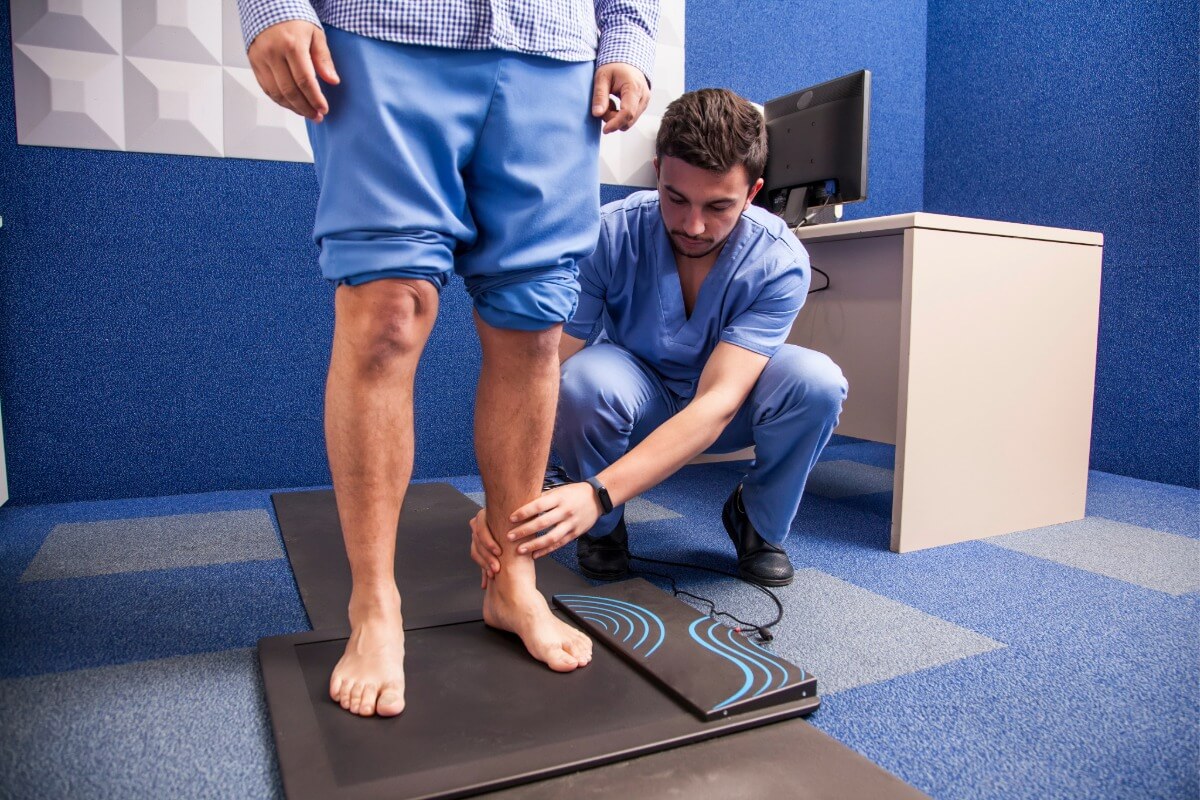Why Your Heels Hurt in the Morning: Understanding Plantar Fasciitis Flare-Ups

Waking up to sharp heel pain with your first steps can be an unsettling experience. This discomfort, often easing as the day progresses, is a hallmark symptom of plantar fasciitis, a common foot condition affecting millions annually. Understanding the causes, risk factors, and treatment options is crucial for effective management and relief.
What Is Plantar Fasciitis?
Plantar fasciitis is a prevalent foot condition characterized by inflammation of the plantar fascia, a thick, fibrous band of tissue that runs along the bottom of the foot, connecting the heel bone (calcaneus) to the toes. This ligament plays a crucial role in supporting the arch of the foot and absorbing shock during walking and running.
When the plantar fascia is subjected to excessive stress or strain, it can develop small tears, leading to inflammation and pain. This condition is particularly common among runners, individuals who are overweight, and those who wear shoes with inadequate support.
The hallmark symptom of plantar fasciitis is a stabbing pain in the bottom of the foot near the heel. This pain is often most severe with the first steps after awakening, although it can also be triggered by long periods of standing or rising from sitting. While the pain may decrease with movement, it can return after extended periods of rest.
Understanding the anatomy and function of the plantar fascia is essential for comprehending how plantar fasciitis develops and how it can be effectively treated.
Why Is Heel Pain Worse in the Morning?
One of the most distinctive features of plantar fasciitis is the sharp heel pain experienced during the first steps in the morning. This phenomenon occurs because, during sleep, the foot remains in a relaxed position, causing the plantar fascia to contract and tighten. Upon standing, the sudden stretching of the tightened fascia leads to microtears and inflammation, resulting in acute pain.
Additionally, the body's natural inflammatory response is heightened during periods of rest, such as overnight. This increased inflammation contributes to the stiffness and discomfort felt in the morning. As the day progresses and the foot becomes more active, the plantar fascia warms up and becomes more flexible, often reducing pain levels.
However, the pain can return after prolonged periods of inactivity, such as sitting at a desk or driving, due to the same mechanism of fascia tightening and subsequent stretching upon movement. This cycle underscores the importance of regular stretching and proper footwear to maintain flexibility and support for the plantar fascia throughout the day.
Risk Factors and Common Causes
Several risk factors and common causes contribute to the development of plantar fasciitis:
- Age: Plantar fasciitis is most common between the ages of 40 and 60.
- Foot Mechanics: Flat feet, high arches, or abnormal walking patterns can affect weight distribution and place added stress on the plantar fascia.
- Obesity: Excess weight increases the strain on the plantar fascia, particularly during weight-bearing activities.
- Occupational Hazards: Jobs that require long periods of standing or walking on hard surfaces can damage the plantar fascia.
- Physical Activity: Engaging in activities that place a lot of stress on the heel and attached tissue, such as long-distance running, ballet dancing, and aerobic dance, can contribute to the onset of plantar fasciitis.
- Improper Footwear: Wearing shoes with poor arch support or soft soles can result in inadequate support for the plantar fascia.
- Tight Achilles Tendons: A tight Achilles tendon, which connects the calf muscles to the heel, can affect the ability to flex the ankle and make the plantar fascia more susceptible to injury.
Understanding these risk factors is crucial for both the prevention and treatment of plantar fasciitis. Addressing modifiable risks, such as weight management and proper footwear, can significantly reduce the likelihood of developing this condition.
At-Home Remedies and Lifestyle Tips
Managing plantar fasciitis at home involves several strategies:
- Stretching Exercises: Regular stretching of the calf muscles and plantar fascia can alleviate tension.
- Ice Application: Applying ice to the affected area can reduce inflammation and pain.
- Proper Footwear: Wearing shoes with good arch support and cushioning helps distribute pressure evenly.
- Night Splints: These devices keep the foot flexed during sleep, preventing the plantar fascia from tightening overnight.
- Weight Management: Maintaining a healthy weight reduces stress on the feet.
When to See a Podiatrist
If home remedies do not alleviate the pain or if the discomfort persists for several weeks, it's essential to consult a podiatrist. Professional evaluation can rule out other conditions and provide targeted treatment options.
Advanced Treatment Options at Diablo Foot & Ankle
At Diablo Foot & Ankle, we offer advanced treatments for plantar fasciitis:
- Platelet-Rich Plasma (PRP) Therapy: This regenerative treatment involves injecting concentrated platelets from your blood into the affected area, promoting healing and reducing inflammation.
- AmnioFix Injections: Derived from the amniotic membrane, these injections contain growth factors that aid in tissue repair and reduce inflammation.
- Custom Orthotics: Adjusted shoe inserts provide support and alleviate pressure on the plantar fascia.
- Physical Therapy: Guided exercises and therapies can strengthen the foot muscles and improve flexibility.
Take the First Step Toward Relief
Persistent heel pain should not be ignored. Early intervention can prevent the condition from worsening and improve your quality of life. Schedule a consultation with us today.
Diablo Foot & Ankle
Walnut Creek, San Ramon, and Antioch
📞 (925) 464-1982
🌐 diablofootankle.com
Related articles
Request your podiatry consultation now
Fill out our contact form for a prompt call back. Diablo Foot & Ankle: Premier podiatry group in Walnut Creek & Antioch

.svg)

.svg)
.svg)





